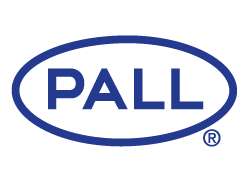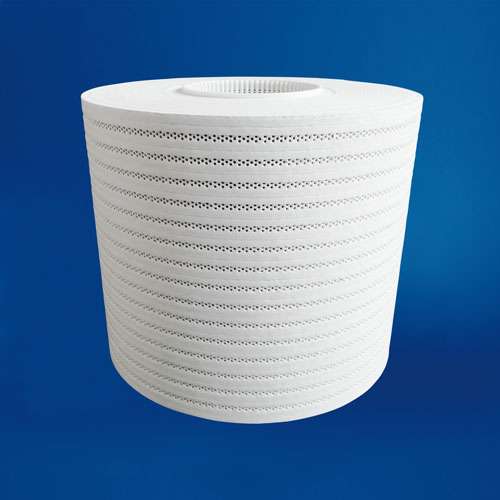What is depth filtration and why is this technology used?
Due to process conditions and raw materials, all manufacturing processes in the Food & Beverage industry related to the production of clear and stable products have unexpected variances in their turbidity and colloidal load. Those variances can have a massive negative impact on the performance of installed filters, especially membrane filters that are installed prior to bottling.
Microbial spoilage contamination is another prevalent concern for most food and beverage manufacturers. The potential impact it can cause may lead to product recalls and compromise consumer safety.
Depth filtration is the ideal solution for such conditions in these applications.
-
Turbidity removal, from coarse to fine particles
-
Polishing filtration
-
Colloidal removal
-
Chill haze removal
-
Removal of microbial spoilage/ Reduction of microorganism (yeast, bacteria, mold)
-
Beer
-
Flavors
-
Hard Seltzer
-
Hemp
-
Olive Oil
-
Spirits
-
Wine
SUPRAdisc™ & SUPRApak™ Depth Filter Modules
Pall’s portfolio of craft beer filtration solutions has been designed to ensure consistent, high-quality products while keeping your production costs low. Our cost-effective and flexible solutions maintain product authenticity, provide high quality, and position craft breweries for increased productivity and expansion.
The SUPRA family is based on sheet technology, combining the advantages of depth filtration with a closed system. There are two product platforms offering safe and gentle clarification of beers with very low beer loss, oxygen uptake and costs.
SUPRApak Depth Filter Modules
Whether you're producing citrus oil or other flavors, we understand that the filtration and separation equipment used in your production must be selective and have the flexibility to reliably remove the different sources of turbidity like colloidal haze, waxes and lipids. However, it's also important that these steps do not negatively influence or reduce quality-enhancing characteristics like aroma and color.
Pall SUPRApak depth filter modules offer an entirely unique design and flow path which forces raw liquid along a significantly longer filtration path before exiting the filter. This "Edge Flow Technology" significantly improves filtration properties and performance compared to conventional flat filter sheets and lenticular modules resulting in higher filtrate quality and better economics.
As well as providing excellent filtrate quality unrivalled with traditional sheet filters, additional benefits of SUPRApak technology include:
Seitz® AKS FB and SUPRApak™
We understand the challenges of filtering hard seltzer. The base product of hard seltzer is usually from neutral spirits, wine, malt or sugar. Most hard seltzers are clear, colorless beverages. But achieving a colorless, flavorless base is a crucial step that poses considerable challenges:
Activated Carbon
The use of bulk powdered activated carbon (PAC) has significant drawbacks due to the handling of bulk carbon powder, equipment cleaning, and time and costs associated with carbon removal from the process. The new Seitz® AKS FB immobilized carbon filter media addresses these concerns and increases the throughput of your hard seltzer by incorporating activated carbon within a matrix of cellulosic fibers.
Carbon particles are protected from shedding downstream by pairing immobilized carbon media with downstream protective filter papers.
Additionally, our activated carbon filtration fixes color and flavor issues, so that the intermediate product can be blended and added with aroma to produce a crystal clear and pure seltzer that offers great taste and refreshens in the absence of disturbing off-flavors.
SUPRApak™, SUPRAdisc™ II and Seitz® AKS FB
Saving Money and Increasing Value in Your Production
When it comes to cannabis oil extraction, we understand the challenges cannabis oil producers face during the downstream filtration process. These challenges include long periods of time to process, labor intensive change outs, lower yields due to drip losses, difficulty of use and open-air systems that lead to quality and safety concerns.
The depth filtration technology used in the Pall cannabis oil filtration systems solves these challenges, enabling the production of high-quality cannabis oil and ensuring compliance with GMP and FCC standards.
OIL CLARIFICATION
Pall offers the SUPRA system comprised of the SUPRApak™ and SUPRAdisc™ II depth filter modules, which are unique and effective depth filter technologies developed specifically to meet the challenging requirements of wax, fat and particle removal.
Their enclosed design offers a sanitary system for filtering, while minimizing product losses and enabling you to achieve large-scale production goals.
COLOR REMOVAL
Our Seitz® AKS FB Series depth filter sheets and SUPRAdisc depth filter modules are a solution for color remediation and off-flavor removal in the cannabis extraction process. Pall's technology and expertise can help you achieve the light golden color desired of cannabis extracts, improve extract purity and protect downstream processes.
Our AKS carbon impregnated modules can improve throughput, yield and efficiency, maintain optimal process control and bring sustainable value to your production process.
SUPRApak technology
We understand a key challenge facing olive oil producers today is consistently providing high-quality olive oil with processes that are cost-effective and reduce product loss. Reduction in turbidity, moisture and wax content as well as other insoluble impurities are key challenges that need to be addressed during production.
Without adequate filtration steps in place, these elements will affect the appearance and shelf life of olive oil and as a result, affect the perceived quality of the oil in the market.
Pall SUPRApak technology allows olive oil producers to achieve a premium quality, high value oil using an easy to use filtration process. SUPRApak depth filter modules are the next level in the development of the depth filter sheets traditionally used in olive oil filtration.
As well as providing excellent filtrate quality unrivalled with traditional sheet filters, additional benefits of SUPRApak technology include:
SUPRApak™ and SUPRAdisc™ II Depth Filter Modules
Saving Money and Increasing Value in Your Production
Whether you need chill haze removal in whisky, activated carbon treatment in vodka, or final filtering in blending water, Pall has the technology and expertise to help you reduce costs, improve output, and maintain complete process control.
Our solutions address the following applications:
- Chill Haze Removal
- Activated Carbon Treatment
- Particle Filtration
Depth Filtration
Pall offers the SUPRApak™ and SUPRAdisc™ II depth filter modules, which are unique depth filter technologies developed specifically to meet the challenging requirements of distilled spirits filtration and can bring sustainable value to your production process.
Activated Carbon
The use of bulk powdered activated carbon (PAC) has significant drawbacks relating to handling bulk carbon powder, cleaning of the process equipment and time and costs associated with carbon removal. The new Seitz® AKS FB immobilized carbon filter media addresses these concerns by incorporating activated carbon within a matrix of cellulosic fibers.
This immobilized carbon media can be coupled with a downstream protective filter paper to prevent carbon particle shedding downstream of the filter.
SUPRAdisc™, SUPRApak™ and Seitz® AKS FB
We understand the delicate balance of preserving a wine's taste and intensity of flavor while maintaining its uniqueness.
Contaminants like crystals, treatment residues, organic aggregates, bacteria and yeast can significantly impact a wine's quality.
Applying Pall's depth filtration technologies and expertise in filtering wine to your process will remove risks and ensure peace of mind by enabling more rigorous process control.
Depth Filtration
Pall offers the SUPRApak™ and SUPRAdisc™ II depth filter modules, which are unique depth filter technologies developed specifically to meet the challenging requirements of colloidal removal in the wine polishing/final filtration process and can bring sustainable value and quality to your winemaking.
Activated Carbon
Crafting a wine's inimitable bouquet while maintaining optimal intensity of flavor along with a beautiful color is the goal of every winemaker. However, in some cases, wine may have an off-taste flavor or color as contaminants can jeopardize the winemaker’s efforts.
Pall offers the Seitz® AKS FB, which is I.O.V (International Organization of Vine and Wine) compliant activated carbon media. This adsorptive filtration technology achieves color, flavor and/or odor correction.
Our filters have an extremely high adsorptive capacity in the filter sheet matrix and for small batches and batch corrections, carbon impregnated sheets and modules offer a simple and easy way to treat wine.















